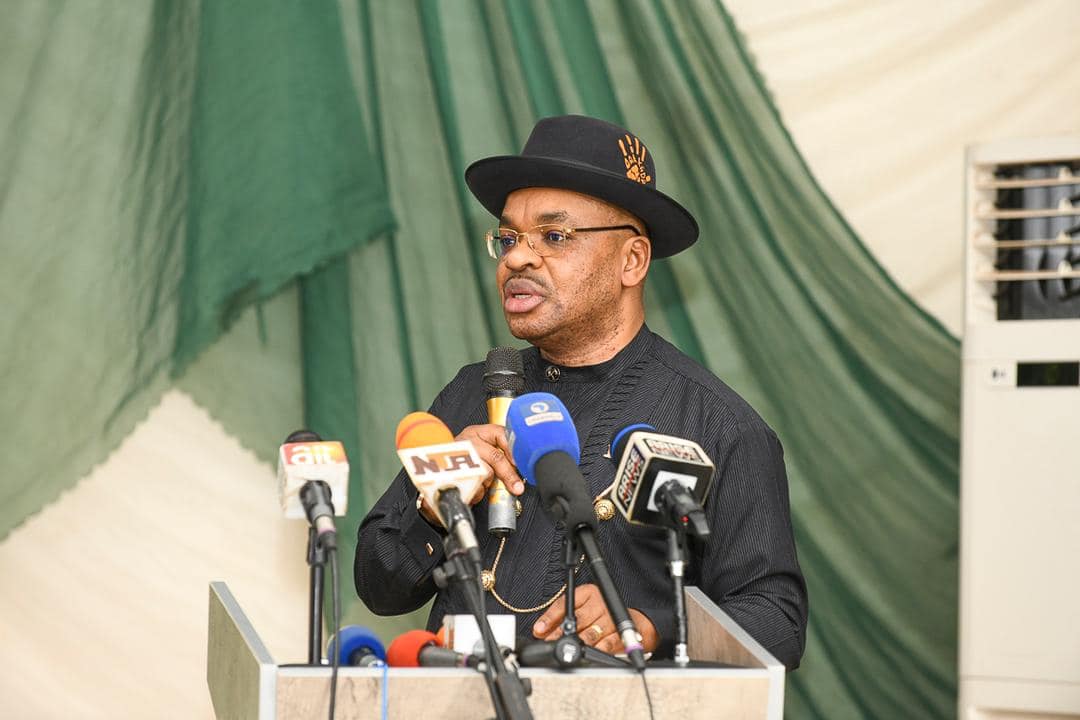Business
SEC To Sack 152 Management Staff, DG Hints

The Director General of the Securities and Exchange Commission (SEC), Lamido Yuguda has given a hint that the Commission will soon retire 152 top management staff as a way of reducing wage cost.
This was coming on the heels of the Senate open anger over the Commission’s spending of a total sum of N8 billion to service its staff out of the N9 billion it generates every year.
Appearing before the Senator Ibikunle Amosun-led Committee on Capital Market to defend the budget performance of the agency 2021 and projections for 2022, Lamido Yuguda said: “In giving room for more financial inflow, we are planning to retire about 152 top management staff with fat salaries in paving way for recruitment of fresh workers with attendant less financial burdensome on the commission.
“There are measures at reducing expenditure and also measures at increasing revenue of the commission.”
During the meeting, the Senate sharply disagreed with SEC over spending of revenues made by the Commission largely on salaries and emoluments of staff.
The Chairman of the Committee, Senator Ibikunle Amosun who lampooned the Commission following the expenses made from its generated revenues, said: “your emolument was almost N6 billion out of the N9 billion and other expenses, so clearly you are spending almost all of the revenue that comes to you on staff emolument and other related things.
“You should give us the number of staff that you have in the commission such that we need to look at what is happening. If you generate about N9 billion and almost N8 billion is purely for servicing the staff. You are having a huge deficit of almost N4 billion. When you continuously make this deficit, year in year out, then something is wrong.”
Earlier while the Senate, through its Committee on Capital Market felt it was wrong for SEC to have expended close to 90% of revenues made in the 2021 fiscal year on staff salaries and emoluments, SEC denied being frivolous on spending of revenues made.
Yuguda in his presentation said: “a total of N11.5 billion was projected as revenue for 2021 out of which N2.689 billion was realised as at June with the hope of making more before the year runs out.
“Total recurrent expenditure for 2021 was budgeted at N13.53 billion but the actual expenditure was N4.063 by the end of June. Our budgeted deficit was N5.173 billion but the actual deficit as at end of September was N2.834 due to funding of it from our reserve . Though revenue performance is still weak but series of innovations like newly introduced charges for secondary Investors , will boost it up from 2022 fiscal year and beyond
Business
Agency Gives Insight Into Its Inspection, Monitoring Operations

Business
BVN Enrolments Rise 6% To 67.8m In 2025 — NIBSS

The Nigeria Inter-Bank Settlement System (NIBSS) has said that Bank Verification Number (BVN) enrolments rose by 6.8 per cent year-on-year to 67.8 million as at December 2025, up from 63.5 million recorded in the corresponding period of 2024.
In a statement published on its website, NIBSS attributed the growth to stronger policy enforcement by the Central Bank of Nigeria (CBN) and the expansion of diaspora enrolment initiatives.
NIBSS noted that the expansion reinforces the BVN system’s central role in Nigeria’s financial inclusion drive and digital identity framework.
Another major driver, the statement said, was the rollout of the Non-Resident Bank Verification Number (NRBVN) initiative, which allows Nigerians in the diaspora to obtain a BVN remotely without physical presence in the country.
A five-year analysis by NIBSS showed consistent growth in BVN enrolments, rising from 51.9 million in 2021 to 56.0 million in 2022, 60.1 million in 2023, 63.5 million in 2024 and 67.8 million by December 2025. The steady increase reflects stronger compliance with biometric identity requirements and improved coverage of the national banking identity system.
However, NIBSS noted that BVN enrolments still lag the total number of active bank accounts, which exceeded 320 million as of March 2025.
The gap, it explained, is largely due to multiple bank accounts linked to single BVNs, as well as customers yet to complete enrolment, despite the progress recorded.
Business
AFAN Unveils Plans To Boost Food Production In 2026
-

 News1 day ago
News1 day agoNigeria Has Woken Up From Slumber Under Tinubu – Shettima
-

 News1 day ago
News1 day agoOji Clears Air On Appointment Of 15 Special Advisers By Fubara
-

 Featured1 day ago
Featured1 day agoRivers: Impeachment Moves Against Fubara, Deputy Hits Rock …As CJ Declines Setting Up Panel
-
News1 day ago
Nigeria To Begin Exporting Urea In 2028 -NMDPRA
-

 News1 day ago
News1 day agoEFCC Indicts Banks, Fintechs In N162bn Scams
-
News1 day ago
Situation Room Decries Senate’s Delay On Electoral Act, Demands Immediate Action
-
Niger Delta1 day ago
Tinubu, Leading Nigeria To Sustainable Future – Okowa … Lauds Oborevwori Over Uromi Junction Flyover Construction
-

 News1 day ago
News1 day agoKing Jaja Impacted Beyond Rivers -Deputy Gov

